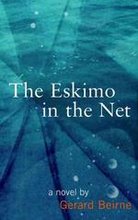The Domesticated Human
Ed Russell's back. I have the kettle boiling.
"Pull up a chair, Ed, green tea brewskies on the way."
"Something I forgot to say: Most of the literature on domestication implies that humans have sat in the driver's seat while other species rode in the back of the truck. The first word in the title of anthropologist Yi Fu-Tuan's analysis of pets, Dominance and Affection, reflects this view. For Perkins, who described the Green Revolution as one stage in a long evolutionary process, this unidirectional view is inadequate. "Wheat and people coevolved in ways that left neither much ability to prosper without the other," he argues. This bi-directional view opens the possibility that organisms domesticated humans as well as vice versa. Biologist Raymond P. Coppinger and English professor Charles Kay Smith have argued that since the last ice age, some 10,000 years ago, much of the most important evolution has taken place within the arena of human activity. Teaming up with humans was a good strategy for organisms faced with a rapidly changing environment."
"Domesticated humans. I like this alot Ed."
"Dead Beat, don't you think the time has come for us to understand such histories in a coherent way. Scholars in a variety of disciplines and fields have built the foundation for such an inquiry, with biology and history leading the way along parallel, but too rarely intersecting, paths. Evolutionary history offers a way to link these endeavors. To biology, history offers understanding of the social forces that create selective pressures. To history, biology offers understanding of the ways organisms respond to such pressures. Together, as evolutionary history, they offer understanding of the ever-changing dance between humans and nature. The resulting synthesis just might lead us to new understanding of historical episodes as disparate as state building, capital accumulation, geopolitics, industrialization, and domestication. If we are to understand how genetic engineering shapes human experience today and in the future, it behooves us to examine ways in which anthropogenic evolution has shaped us in the past."
To put it another way, dear readers, if we are to write about the human experience as we all claim to do, it behooves us to examine ways in which anthropogenic evolution has shaped us in the past.











2 comments:
don't you know? humans were created in their present state exactly 10,000 years ago. despite all the strong selection pressures, scientists and anthropologists seem to effectively "believe" the same thing as the christians; there has been no significant human evolution in the past several thousand years.
No D.B. did not know that - he had a strange belief that we were a tad bit older. He had the inside scoop from his old buddy Charlie D. amongst others!
Post a Comment